Manchester’s teenage girls determined to break the mould
Roula Khalaf, Editor of the FT, selects her favourite stories in this weekly newsletter.
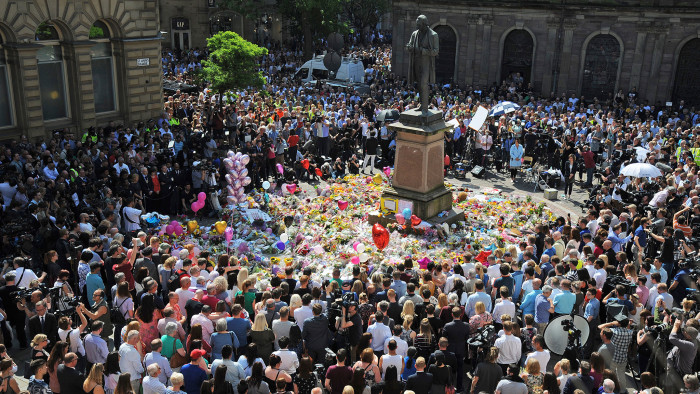
At their summer holiday club in a suburb of Manchester, a lively group of girls talk excitedly about their plans for the future. Two want to be doctors, one a sports coach, another an “actor or adventurer”. They tease each other about boyfriends and express excitement about heading to secondary school in September, which happens at age 11 in the UK. Three will be going to state schools, the other two to separate, single-sex Islamic schools.
All five are the daughters of recent immigrants from Africa and the Middle East, and their stories are typical among girls growing up in this fast-expanding multicultural city in north-west England. More than a third of the 530,000 population is non-white and 16 per cent are Muslim, according to the 2011 census.
The harmony of the city, which has been a magnet for immigrants from around the world, especially since the middle of the last century, was shattered in May this year when Salman Abedi — born in the city to Libyan parents — blew himself up, killing 22 and injuring more than 250. His target was cynically chosen: young women and their parents leaving a concert by Ariana Grande, a Nickelodeon sitcom actress turned pop star. His message could not have been clearer: teenage girls should not be out late, cavorting and listening to music.
The girls at Youth on Solid Ground have not got that message. The club is run by a charity in Whalley Range, a district 3km south-west of the city centre, close to the Abedi family home. There, they take on the boys at football, leap about on the trampoline and talk animatedly about the US television shows they watch on Nickelodeon. Some wear hijabs, some don’t.
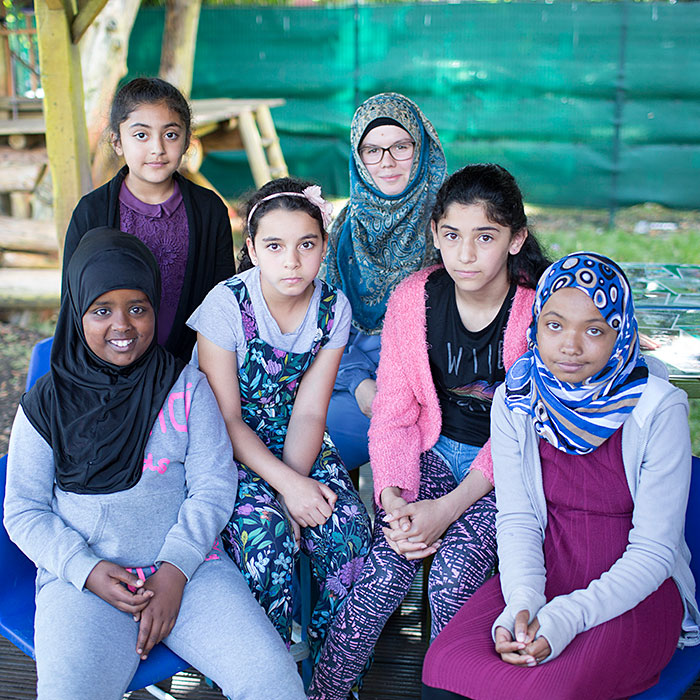
Yumna, 11, the aspiring actress, recalls how she was once told off for fiddling with hers in class. But her brown curls hang free today. “I used to wear it when I was little. Right now I am just like . . . ” makes a gesture to show she’s carefree. “I like to feel young. It makes me feel old. Maybe when I am older.”
“She will wear it when she is 16, 17,” chips in her little sister, prompting laughter among the others. But Yumna says her parents believe the decision is hers.
Yumna’s family straddles two cultures. Her father escaped from Libya in the late 1990s, married a British woman and had children. They were later divorced, and he returned to Libya for an arranged marriage before bringing his new wife — the girls’ mother — back to Manchester. Yumna says she still meets up with her older, “atheist sisters” and they get on well.
Her friend Shaima is dressed in a multicoloured hijab, long top, black leggings and Adidas trainers. She is a cross-country runner and keeps her headscarf on while slogging through the muddy fields around Manchester. The daughter of Somali immigrants is passionate about girls having equal chances to excel on the playing field. “I want to be a sports coach and get more girls to do sport,” she says in a thick Manchester accent.
Like the others, Shaima says she feels British first and Muslim second. They all learn Arabic at mosque schools and speak their parents’ languages at home. Some of them help to translate for their mothers in daily interactions.
Yet, the odds that all five of them will be able to pursue their chosen careers are not favourable. According to the UK government, the employment rate across the country for Muslim women of working age was just 34.9 per cent in 2015. For all women, it was 69 per cent and for Muslim men 67.4 per cent. That rate is ticking up, however, and, in 2016 the number of Muslim women with university degrees exceeded the number of men for the first time. Some 25 per cent of Muslim women aged 21-24 had degrees from British universities, compared with 22 per cent of Muslim men of the same age, research found.
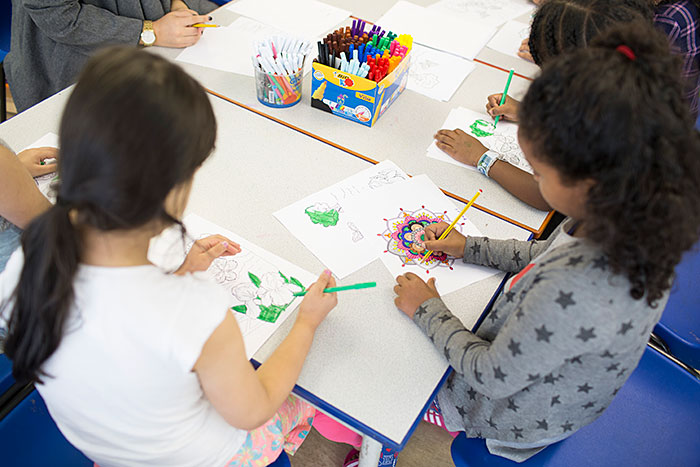
Questions of identity and integration have become particularly sensitive in Manchester since the attack in May. Muslim groups have marched in sympathy with the victims, imams have joined Christian and Jewish priests to preach peace and tolerance.
At the same time, hate crimes are on the rise. There have been isolated incidents: a mosque set on fire, a brick thrown at another, two Jewish takeaways vandalised. According to Greater Manchester Police, which covers the cities of Manchester and Salford and eight surrounding boroughs, religious hate crimes spiked in the four weeks after the attack — up from 92 in 2016 to 366 — before returning to normal levels. Specifically, Islamophobic crimes leapt from 37 to 224 incidents.
In June, Andy Burnham, mayor of Greater Manchester, set up a commission to tackle violent extremism and promote social cohesion in the city. “One of the most difficult aspects of this attack was the fact that the perpetrator grew up here,” he said at the time. “In my view, tackling extremism has got to begin with families and communities.”
Recent government reports have found that immigrant communities often lead “parallel lives”, inhabiting the same streets but rarely interacting with one another. When Abedi’s home was raided by police after the bombing, few neighbours knew who he was or could identify the Libyan flag he used to fly from his window. Most had not even noticed his parents had moved back to Libya.
The girls at the youth club say they have plenty of white friends and do not feel afraid on the streets. Rayan, 11, says “there is a lot of racism” but that some of it is unwitting.
Majid Dar, who founded the club in 2009, says wealth still creates a bigger divide than race. “Before we set up, there was nothing positive in the community; there were no programmes for kids. We want to give them leadership skills and role models,” he says.
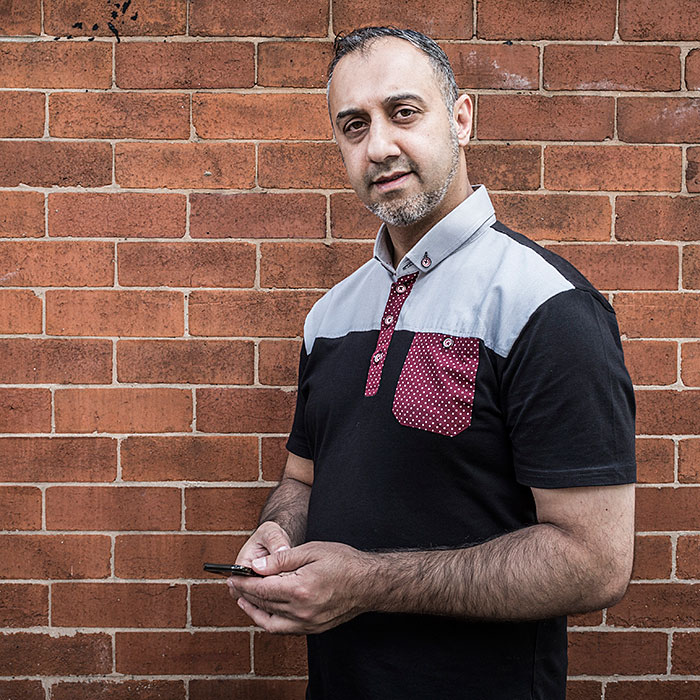
Dar says he needs to raise £200,000 a year in running costs from donors. The money is to support a centre and fenced area, including a small football pitch and a short running track that doubles as a cricket pitch. Last year, the centre received a £90,000 makeover on the BBC TV show The Dengineers. But Dar wants to be able to expand to accommodate more than the 500 children, mostly aged between six and 12, who use the centre each week. “What about those who are 14, 15, 16, 17? I haven’t got anything to offer them,” he says.
“Young people find it difficult to get jobs. The secondary schools are not very good. There are not many businesses around here. You have all this investment in the centre of Manchester. It is so close but it feels far away. The companies need to come here and support people into jobs. They have been let down and it knocks their confidence.”
Dar believes his group could play a bigger role in tackling community isolation. “We get nothing from the council,” he says. “There should be pots of money for community cohesion projects.”
Dar is 42 and his own family story shows what a rich tapestry immigrants to Britain weave: “My dad was a religious man. He set up a mosque in Manchester. I used to be a breakdancer and we trained in a church. My sister is a Labour councillor, my brother a solicitor. Another sister works at the Canadian embassy. They are all over the UK. The UK is our home and I love it.”
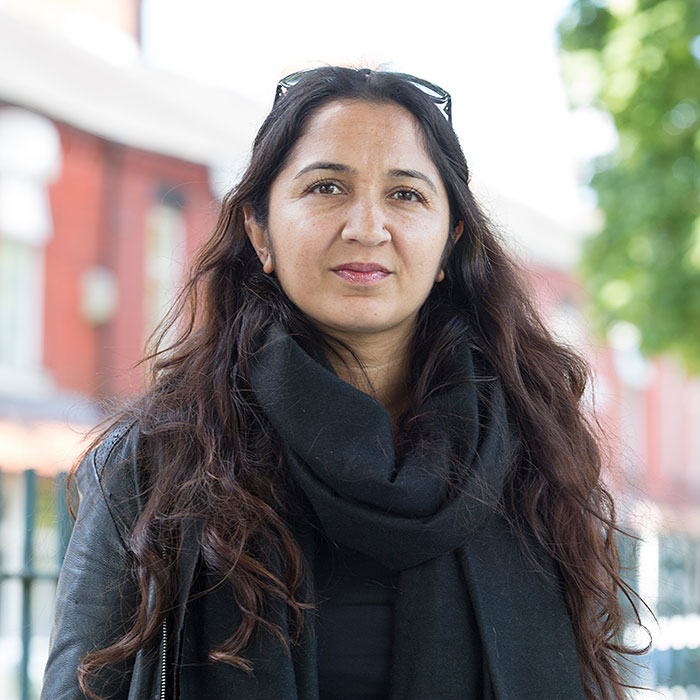
Manchester High School for Girls is less than 2km from the youth club but it feels like a different world. Fees go up to almost £11,500 a year and girls must pass an entrance exam. But the school does reflect the make-up of the community around it: some 20 per cent of pupils are Muslim and around 5 per cent are Jewish. Between them the pupils speak 45 different languages. Claire Hewitt, the headmistress, says it is important to build mutual respect while challenging conservative views. “The Muslim girls go to my assemblies. They all do music. I won’t let them be withdrawn from those things. It is important parents come with their eyes open.”
A fee-paying school has the luxury of being selective, but state schools must be open to all. Hewitt also has greater flexibility in what to teach. Every Friday the oldest girls — 16-18-year-olds — organise faith assemblies, including Muslim and Jewish ones, that are open to everyone.
Empowering girls is a big part of the school’s ethos. Emmeline Pankhurst, the suffragette leader who was jailed for taking direct action in her campaign to win the vote for women, sent her daughters to the school. Hewitt has introduced a new uniform with a purple trim — the colour of the suffragettes.
Pamela Ashcroft, the school’s marketing manager, says the fact that Abedi’s attack was at a concert with an overwhelmingly young female audience has hit the pupils particularly hard — some were at the gig. “It was a targeted attack on everything we stand for here,” she says.
Still, despite the best efforts of teachers and community activists to integrate Manchester’s various communities, some children have been radicalised. At least 16 young men from south Manchester have left home to fight for jihadist groups in recent years, while two sisters from Whalley Range 11-18 High School for girls went to Syria in 2014 to marry men fighting for Isis. They are still missing.
Amina Lone is a Manchester city councillor who believes the UK’s different communities are drifting further apart. The daughter of Kashmiri immigrants, she grew up in Birmingham in the 1970s. “We had white neighbours, Asian neighbours, black neighbours. We had the vicar come round for tea,” she says. “We were always in and out of each other’s houses. What united us was class, not race — the feeling that we were all in it together.”
Back then, apart from going to the mosque, there was little opportunity to live separate lives, she says. Everyone was forced to watch the same TV channels and attend mixed state schools. Travel to countries such as Pakistan was expensive.
The 1970s were not perfect, Lone admits. She recalls running away from racists chanting abuse. “On the way home from school there was one house we had to run past because we knew [the owner would] set his dogs on us if he saw us. But most people were fine.”
Even so, Lone says that while her generation wanted to integrate, many of their children have opted to embrace traditional Islamic values, feeling disorientated and unwelcome in an increasingly secular British society. Combined with an influx of new immigrants from more conservative societies in the Middle East this attitude has turned some inner-city areas into Muslim enclaves, she says.
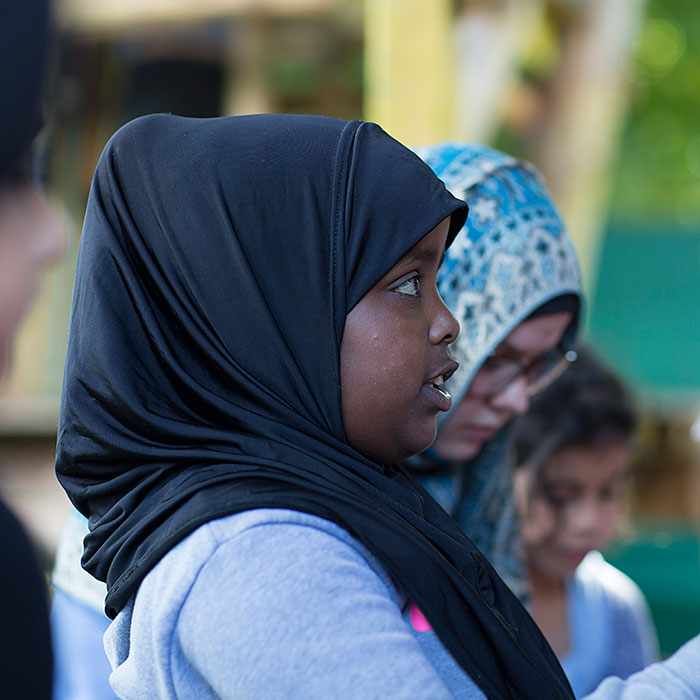
Islamic schools have proliferated: there are more than 160 in the UK, according to the Association of Muslim Schools. The first Muslim state school opened in 1998 and between January 2007 and September 2017 they quadrupled in number from seven to 27, helped by policies to encourage free schools, which are state-funded but not controlled by local councils.
Lone is concerned that in the more conservative parts of Muslim communities, girls are withdrawn from swimming lessons or other sporting activities. It is not just mosques that are segregated, but some gyms, social clubs and political meetings are too, she says.
“We have allowed a patriarchy to control Muslim women’s lives in this country,” she says. “The so-called community leaders the state talks to do not represent their communities at all.” In her work as a Labour politician, Lone has attended meetings where the audience was segregated by gender, she says. A fellow female councillor was asked to step aside to make way for a man.
A single mother of four, who sports a leather jacket, Lone runs the Social Action & Research Foundation charity and has attracted anger for her outspoken attacks on conservative Muslim values. Her strident appearances on TV and in national newspapers infuriate many. She recently defended Sarah Champion, a Labour MP who wrote that the UK “had a problem” with British Pakistani men raping white girls. The comments came in the wake of the convictions of a group of British Pakistani men for sexual exploitation of girls in Rotherham, Rochdale, Newcastle and other UK cities, over many years.
Champion resigned as shadow equalities minister. “I got a lot of abuse” for supporting her, Lone says. “But I also had lots of people contacting me to say thank you. They agreed with me but were too scared to say so publicly.”
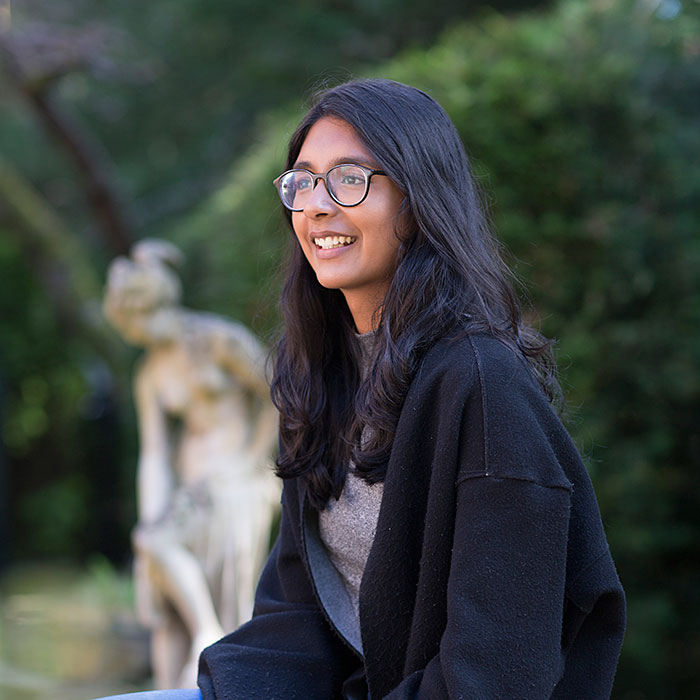
Not everyone feels that maintaining cultural independence is a bad thing. In September, responding to fear about schools listing hijabs as items of school uniform, Toby Howarth, the Bishop of Bradford, said that girls often wanted to “look like their mums” and that they were a matter of religious identification rather than anything else.
Manchester High pupil Nisa Hasan begins an economics degree at Cambridge university this year. Her parents moved to the UK from India to study medicine and remained after they had qualified. Her father was brought up a Muslim and her mother a Hindu, though neither is particularly religious.
She says her parents gave equal encouragement and opportunity to her and her brother. “They have pushed me in what I wanted to do. But I am self-motivated too,” she says. “I was shocked by how unequal the UK is. It takes an economist to help . . . most economists I have read about are old and male.” She says she appreciates the chance to choose the career she wanted.
Back in Whalley Range, Naima, 11, talks about her hope for the future of her city and her country. She doesn’t see a long term barrier to integration: “We should all just get together and stop being racist,” she says, simply.
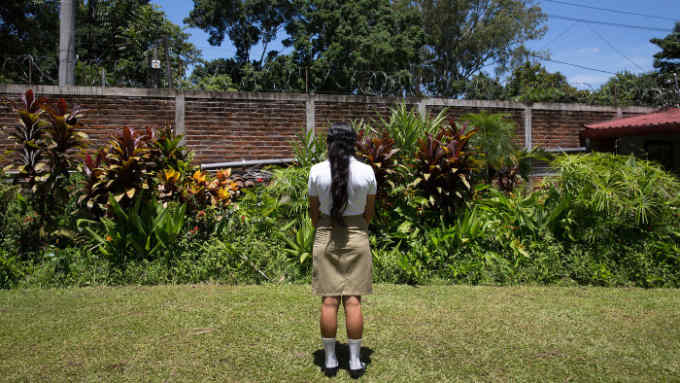
Comments